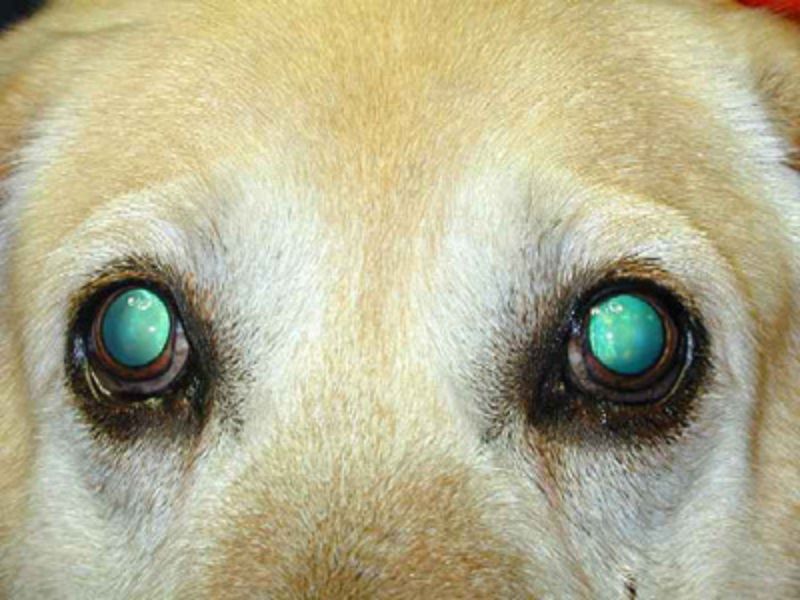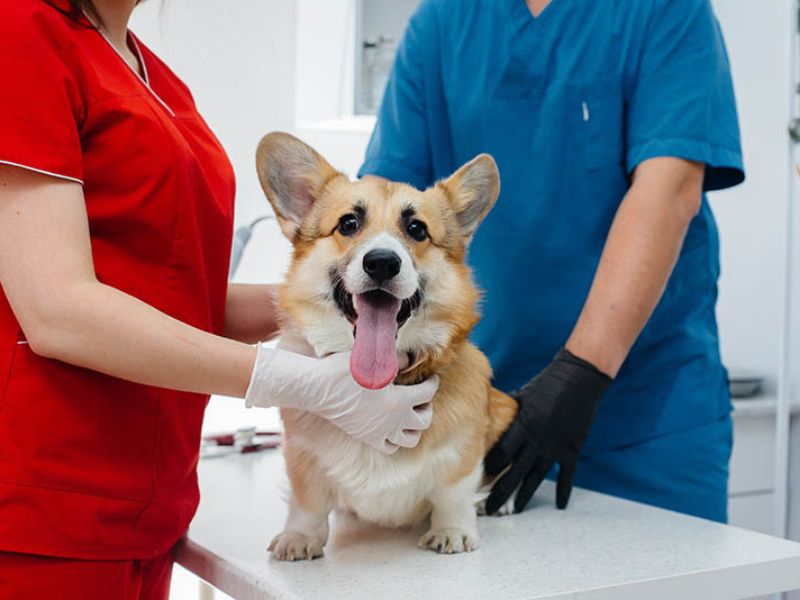Do corgis have any health issues? Like many dogs, there are many common corgi health problems that every dog owner must know about. As the proud owners of a Corgi, we know how happy it is to have one of these cute dogs.
In this piece, Canvas Personalized talks about 10 health issues with Corgis that every owner should know and gives tips on how to avoid them.
Brief Overview Of Corgi Herding Dogs Popularity
Corgis came from Wales. Shepherds grew them when they needed help keeping track of large groups of sheep. Corgis were great at herding bigger animals in a group because they were intelligent and friendly.

Corgis have become more famous and loved family pets in recent years because they are bright and get along well with other people. Corgis are known for their cute and cuddly short legs, soft fur, big ears, and friendly looks.
Most Corgis are still used on farms as herding dogs. They are happy, lively, and friendly dogs that love to be around people. Corgis can adjust to any home setting if they exercise enough.
Corgi Breed History: Pembroke Welsh Corgi & Cardigan Welsh Corgi

According to the American Kennel Club, corgis come in two types: Pembroke Welsh corgis and Cardigan Welsh corgis. When Queen Elizabeth II started to own and breed them, their fame grew even more. Both dog breeds are known for their friendly attitudes and short legs. Today, they are popular pets because they look cute and friendly.
Cardigan Welsh corgis are the oldest dogs, and they are used to handle sheep. The Pembroke was a distinct breed and initially bred to herd cattle. The key distinction is their ears, tail, and general size compared to the Cardigan. The Pembroke is the smaller of the two, and its ears are pointy instead of round. This healthy breed is also shorter than the Cardigan, which has a long tail like a fox’s. Most Pembroke Welsh corgis are red, black, or sable, while Cardigans come in a broader range of colors with white markings.
Pembroke Corgi and Welsh Corgi are friendly and eager to please their owners. Because they are loyal and fun, they are the best pet for a family with kids.
If you’re considering bringing a cute Corgi into your home, you should know much about the breed’s unique health conditions. Here are 10 common health problems corgis so you can be responsible breeders or dog owners.
Common Pembroke Welsh Corgi Health Issues
It’s important to know what usual health problems corgis have. Pembroke Welsh Corgis are, as a sensitive breed, generally healthy dogs. However, like other dog breeds, they are predisposed to a few health issues.

So knowing the signs and symptoms of these health problems is essential; you can catch them early and get help before they worsen. By keeping an eye on and caring for your corgi’s health, you can help ensure it lives a long and happy life.
>>> Learn more about the useful dog care tips to keep your puppy happy and healthy!
1. Corgi Hip Dysplasia
Hip and elbow dysplasia is one of most dogs’ most prevalent health problems. Corgi hip dysplasia is a genetic condition where the hip joint and bone do not develop correctly, causing the joint to become loose or unstable. Corgis are prone to hip dysplasia due to their genetic makeup and the fact that they are a dwarf breed.

Corgi hip dysplasia occurs when a dog’s thigh bone is improperly sized or shaped for the hip joint. Arthritis and other movement problems can develop as a result of this.
Signs and symptoms:
- Difficulty standing up or walking
- Stiffness or limping after exercise or activity
- Decreased activity level as your dog ages
- Pain or discomfort when touched in the hip area
Treatment options:
- Medications for pain management and inflammation
- Weight management to decrease stress on the joints
- Physical therapy or rehabilitation to strengthen the muscles around the joint
- Surgery to replace or repair the affected joint

There should be no breeding of other dogs with hip dysplasia. Ask the breeder if they perform dysplasia testing or other health conditions on their breeding dogs before adopting a Corgi.
2. Intervertebral Disc Disease (IVDD)
Intervertebral Disk Disease (IVDD) is one of the most common corgi back problems affecting corgi’s spinal cord. IVDD happens when the discs between the dog’s vertebrae bulge or herniate into the spinal space. Because of their elongated bodies, Corgis frequently suffer from spinal disc herniation.

Cardigan Welsh Corgi is more likely than Pembroke Welsh to develop IVDD or other corgi back problems, which affects up to 20% of the breed. This is a critical ailment that requires immediate attention to prevent future complications. Herniation of the disk can occur suddenly and is especially concerning in Pembroke Welsh Corgi personality.
Signs and Symptoms:
- Back pain or stiffness
- Difficulty walking or standing
- Weakness or paralysis in the hind legs
- Loss of bladder or bowel control
- Decreased appetite or lethargy
Treatment Options:
- Conservative management: crate rest, medication for pain and inflammation, and physical therapy
- In more severe cases, surgery may be necessary.
- It is essential to seek a veterinary DNA test as soon as possible.
- Avoid activities that strain your Corgi’s back excessively, such as jumping or running on hard surfaces.
3. Degenerative Myelopathy
Degenerative myelopathy (DM) is one of the most dangerous neurological corgi health problems that affect the spinal cord. The spinal cord of a Corgi deteriorates over time because of degenerative myelopathy. It causes deterioration and associated supporting tissue in affected dogs.
Degenerative myelopathy is common in Pembroke Corgis and seriously threatens the breed.
Signs and Symptoms:
- Difficulty walking, stumbling, and dragging the hind legs.
- Experience muscle mass as the disease progresses, making the legs appear thin and weak.
- Maybe they become entirely paralyzed and unable to control their bladder and bowels.
- Causes disorders in the brain, spine, and spinal cord, including slouching and muscular wasting.
Treatment Options:
Unfortunately, there is no cure for degenerative myelopathy in corgi back problems, and treatment options are limited. However, there are ways to manage the symptoms and improve the quality of dog’s life.
- Physical exercises
- Medication to manage pain and inflammation
- Use mobility aids such as a cart or wheelchair.
- Consult a veterinarian to develop a treatment plan appropriate for the dog’s quality of life.
4. Complications in Corgi Pregnancies

Corgis are a small breed, which can make pregnancy and childbirth more difficult. Corgis are prone to complications during pregnancy and delivery, such as dystocia (difficult labor), uterine infections, and a retained placenta.
Genetics, obesity, or subpar prenatal care can all contribute to these Pembroke Welsh corgi health issues.
Signs and symptoms:
- Prolonged bleeding labor, straining without a puppy, and weakness or lethargy
- Signs of uterine infections may include fever, loss of appetite, and foul-smelling vaginal discharge.
- Signs of a retained placenta include fever, lethargy, and dark red discharge from the vagina.
Treatment options:
- Medication, assisted delivery via cesarean section, and intensive care.
- Provide adequate prenatal care.
- Seek veterinary attention promptly if any signs of complications arise.
If you’re considering breeding your Corgi, it’s essential to consult with a veterinarian to ensure a healthy pregnancy and delivery.
5. Cataracts
A cataract is the eye’s lens’ cloudiness, defect, or opacity. Cataracts range in severity from being barely noticeable to completely clouding the eye’s lens, resulting in blindness. In corgis, cataracts are usually hereditary but can also be caused by injury, inflammation, or metabolic disorders.

Cataracts can develop in older Pembroke Welsh Corgis, so keep an eye on their lenses if they seem clouded.
Signs and symptoms:
- Cloudiness or opacity in the lens of the eye
- Vision impairment or blindness
- Bumping into objects or having difficulty navigating in familiar surroundings
- Squinting or rubbing the eyes
- Watery or discolored eyes
- Cataracts can develop gradually or suddenly, affecting one or both eyes.
Treatment options:
- Cataracts cannot be reversed or cured with medication, but surgery can be performed to remove the cloudy lens and replace it with an artificial one.
- Surgery is generally recommended for corgis with cataracts that affect their daily activities or quality of life.
- However, not all corgis are suitable candidates for surgery, and the procedure carries some risks, including infection, bleeding, and retinal detachment.
- Regular checkups with a veterinarian can help detect cataracts early and manage the condition with medications or other supportive therapies.
6. Progressive Retinal Atrophy
Progressive Retinal Atrophy (PRA) is a term used to describe a collection of eye illnesses that progressively worsen a dog’s retina. It is a genetic condition that can cause blindness in health problems corgis. A Corgi will go night blind quickly and may eventually lose their daytime vision.

Signs and symptoms:
In the early stages of PRA, dogs may have difficulty seeing in low-light conditions and bump into objects.
As the disease progresses, other breeds may develop night blindness and completely lose vision.
Treatment options:
Unfortunately, there is currently no cure for PRA. However, some treatments, such as vitamin E supplements and antioxidants, may slow down the progression of the disease.
It’s also essential for owners to ensure their dog’s eyes by keeping their environment consistent and avoiding moving furniture or objects around.
7. Retinal Dysplasia
Retinal dysplasia is a genetic eye disorder that affects the development of the retina, leading to abnormalities. A mutation in the animal’s DNA affects how the retina develops, which are the condition’s corgi health problems.

It has been observed in Corgis, albeit at a much lower frequency than cataracts and progressive retinal atrophy. When the retina detaches due to retinal dysplasia, the animal can go completely blind.
Signs and symptoms:
- Dogs with retinal dysplasia may have difficulty seeing objects in low-light conditions or navigating new environments.
- The dog may also have difficulty distinguishing between different colors or shapes.
- Other symptoms include a lack of depth perception and an increased sensitivity to light.
Treatment options:
Unfortunately, there is no cure for retinal dysplasia. However, specific treatments may help to manage the condition’s symptoms, such as:
- Use medications to reduce inflammation or surgery to correct abnormalities in the retina.
- Regular check-ups with a veterinarian can help monitor the dog’s condition and manage symptoms.
8. Von Willebrand’s Disease
A lack of von Willebrand factor (vWF) in the blood causes von Willebrand’s disease, a blood clotting disorder. A dog with von Willebrand’s disease has a genetic predisposition not to create enough of a protein essential for normal blood clotting.

Both dogs and humans are susceptible to developing von Willebrand disease, such as a complete blood count. Von Willebrand disease is a commonly inherited bleeding disorder in the corgi health issues between the ages of three and five.
Signs and symptoms:
- Excessive bleeding from cuts or wounds
- Prolonged bleeding after surgery or dental procedures
- Nosebleeds
- Blood in urine or feces
- Bruising easily
Treatment options:
- There is no cure for Von Willebrand’s disease, but it can be managed through various treatment options:
- Doing a DNA test to examine the animal’s ancestry.
- Blood transfusions, medication to increase vWF production, and minimizing the risk of injury or bleeding episodes
- Ask your vet if your corgi has been diagnosed with this disease to ensure proper periodic blood testing and care.
9. Patent Ductus Arteriosis
Patent ductus arteriosus (PDA) is a congenital heart condition in which the ductus arteriosus, a blood vessel that connects the pulmonary artery and the aorta in a fetus, fails to close after birth. PDA’s cause is unknown, but it is believed to be genetic.

Corgi puppies are often born with a congenital cardiac defect because their lungs aren’t used until after birth; the heart has a specific hole to divert blood elsewhere. If a veterinarian examines a Corgi puppy and notices PDA, it can be surgically rectified.
Signs and symptoms:
- Dogs with PDA may exhibit no symptoms, but some may show signs of heart failure, such as coughing, difficulty breathing, and weakness.
- The condition can also lead to an enlarged heart, abnormal heart rhythms, and other complications.
Treatment options:
- Medication to manage symptoms and surgery to correct the defect.
- The prognosis for dogs with PDA is good with early detection and treatment. However, the condition can lead to heart failure and death without treatment.
10. Epilepsy

Epilepsy is a neurological disorder considered one of the common corgi health problems that are often but not always passed down from generation to generation.
Dogs with epilepsy can have a wide range of scary seizures, depending on the severity of their condition.
Signs and symptoms:
- Seizures: The most common sign of epilepsy is seizures, which range from mild to severe and may involve convulsions, tremors, or loss of consciousness.
- Other signs: Other signs may include drooling, panting, pacing, or sudden behavioral changes before or after a seizure.
Treatment options:
- Medications: Anticonvulsant medications are the most common treatment for epilepsy in dogs. These medications work to reduce the frequency and severity of seizures.
- Lifestyle changes: Corgis with epilepsy may benefit from changes in diet, exercise, and sleep patterns to help reduce stress and manage their symptoms.
- Surgery: In some cases, surgery may be recommended to remove tumors or other underlying causes of seizures in corgis.
How To Prevent Corgi Health Issues
Preventative measures can help keep your Corgi healthy and avoid weight gain and other common corgi health issues. Here are some tips for maintaining your Corgi’s health:

Proper diet and nutrition: Feeding your corgi a balanced and nutritious diet is crucial for maintaining their health and preventing various health problems. Make sure to choose a high-quality dog food that meets their nutritional needs and avoid overfeeding them to prevent obesity.
Regular, proper exercise and weight control: Regular exercise and weight management are essential for dogs to maintain a healthy weight and prevent obesity-related health problems corgis. Make sure to provide mental stimulation to your corgi, such as daily walks, playtime, and running in a fenced yard.
Regular vet check-ups: Regular check-ups with your vet can help detect potential health problems early on and prevent them from worsening. Schedule annual wellness visits and follow your veterinarian’s recommendations for preventative care, such as vaccinations, heartworm prevention, and parasite control.
Genetic testing: Many corgi health problems are genetic, so it’s essential to have your corgi tested for any potential genetic issues before breeding. Genetic testing can help identify genetic predispositions to specific health problems, allowing you to take preventative measures and make informed breeding decisions.

Proper grooming and hygiene: Regular grooming and maintaining proper hygiene practices such as bathing, brushing the coat, cleaning the ears, trimming the nails, and checking for any skin irritations can help prevent various health issues and infections.
Avoiding over-vaccination: While vaccines are essential, over-vaccination can lead to potential health problems. Working with your veterinarian to develop a vaccination schedule tailored to your corgi’s specific needs is critical.
Providing a safe and clean environment for the dog: Ensuring your corgi’s living space is clean, secure, and free from potential hazards such as toxic plants or other dangerous items can help prevent various health problems.
Providing adequate rest and sleep: Corgis need proper rest and sleep to maintain good health. Providing a comfortable and safe sleeping area, avoiding over-exertion, and ensuring that your corgi gets enough rest can help prevent health problems related to stress and exhaustion.
Early detection and treatment of any health problems: It’s essential to regularly take your corgi to the veterinarian for check-ups, even if they appear healthy. Early detection and treatment of any health problems can prevent the problem from worsening and becoming more difficult to treat.
Preventative measures can help ensure that your corgi has a long life expectancy with minimal health problems corgis.
>>>Further reading:
- 44 Plants Safe for Dogs: A Guide to Pet-Friendly Greenery (Outdoor & Indoor)
- 26 Common House Plants Poisonous To Dogs You Should Avoid
As a corgi owner, knowing about the corgi health problems is essential to keep it healthy and happy. To avoid major health problems, be aware early and take preventive steps from Canvas Personalized to extend your Corgi lifespan and healthy life with the human family.










